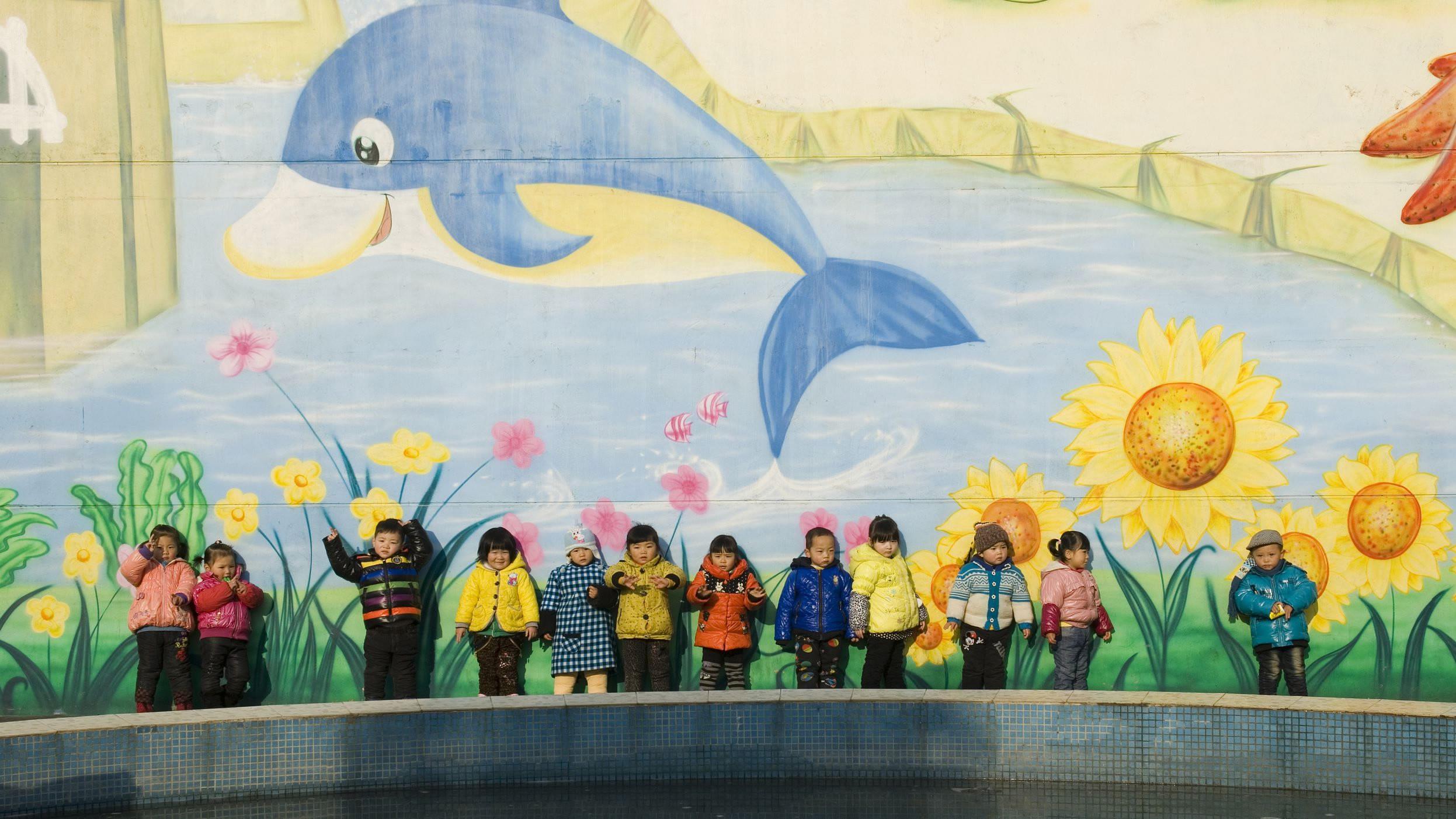
Business
18:50, 07-Dec-2017
China’s kindergarten industry: unbalanced need and supply
By CGTN’s Yang Jing

Investors have been enthusiastic about the kindergarten industry in China due to the demands of a huge market in the world’s most populous country, but the recent child-abuse scandal in China has created major concerns and doubts about private kindergartens - even going as far as to include the whole pre-school industry.
Surging need
With loosening birth control in recent years, China has seen a growth in the number of newborns.
China’s newborn population has jumped from 16.35 million in 2012 to 17.86 million in 2016 - the highest newborn record since 2000, according to official data from the National Bureau of Statistics.
The first tier cities, which attract young laborers from all over the country, showed remarkable newborn growth. For instance, Beijing reported 200,000 newborns in 2016, up 63 percent year-on-year.
With the second-child policy coming into force since 2015, there has been a growing need for child-care service and the peak is expected to come in 2021, when China will need an additional 109,600 kindergartens, together with 3.35 million kindergartens teachers, Li Ling, an education expert at Southwest University, estimated in a paper on China's education resources allocation in the next 20 years.
Compared with the demand, China’s budget for pre-school education is limited. Official data showed that in 2016, the Chinese government spent 28.02 billion yuan in pre-school education, accounting for only 9 percent of the total education budget, but this is a major increase when compared with 1.3 percent in 2010 and 3 percent in 2014.
Investors rush in
Under the pressure of market needs, the government opened the pre-school sector to private investors.
A document on pre-school education released by China’s State Council in 2010 said that local governments should play a major role in developing pre-school education and supporting the development of “inclusive and private kindergartens”.
In 2015, China primarily approved amendments on private education regulation and officially allowed for-profit private schools since September 1, 2017, which means private schools are free to charge and seek profits.
The combination of a hungry market and profit seeking being allowed has encouraged investors to rush into the industry.
In 2015, LED maker Vtron Group Co Ltd acquired child-care and education company Golden Cradle. But in 2015 and 2017, Golden Cradle’s kindergartens have been reported for child abuse behavior and the latest one is under police investigation.
In August of 2017, Shenzhen-listed Gansu Huangtai Wine-Marketing Industry Co Ltd suspended share trading and announced a company reorganization to focus on the pre-school education industry.
Among the investors who targeted Chinese parents’ spending on their children, RYB Education is a leading player. The company went public in the US in September, but the future is gloomy after the recent child abuse scandal triggered massive anger.

A RYB kindergarten in Beijing /VCG Photo
A RYB kindergarten in Beijing /VCG Photo
Lack of talent
Investors have built more pre-schools but have not solved the teacher shortage.
Although the national standard for the ratio of children and teachers in kindergartens ranges from 1:5 to 1:7, the actually ratio is far away from being ideal.

However, the short supply does not attract more talent to the industry because of the high pressure and relatively low incomes of teachers, especially in private kindergartens.
For instance, the average salary per month for teachers at RYB Education chain kindergartens in Beijing ranges from 3,000 yuan to 4,000 yuan (453.5 US dollars to 604.7 US dollars), according to kanzhun.com, the Chinese version of glassdoor.com, compared with Beijing’s average monthly income of 7,706 yuan.
The low income has failed to attract high quality staff. More than 20 percent of the teachers at China’s kindergartens have only received high school education and about 19 percent even do not have a high school diploma, according to official data compiled by The Beijing News.
The teacher shortage is more serious in rural area. As many as 44 percent of kindergarten teachers in China’s rural areas do not have teacher certificates, according to a pre-school estimation report released by the Ministry of Education in 2015.
However, considering the ministry’s latest plan, which was released in May, to make sure all kindergarten teachers have certificates by 2020, China’s pre-school industry may see development opportunities arising with the sector's challenges.

SITEMAP
Copyright © 2018 CGTN. Beijing ICP prepared NO.16065310-3
Copyright © 2018 CGTN. Beijing ICP prepared NO.16065310-3